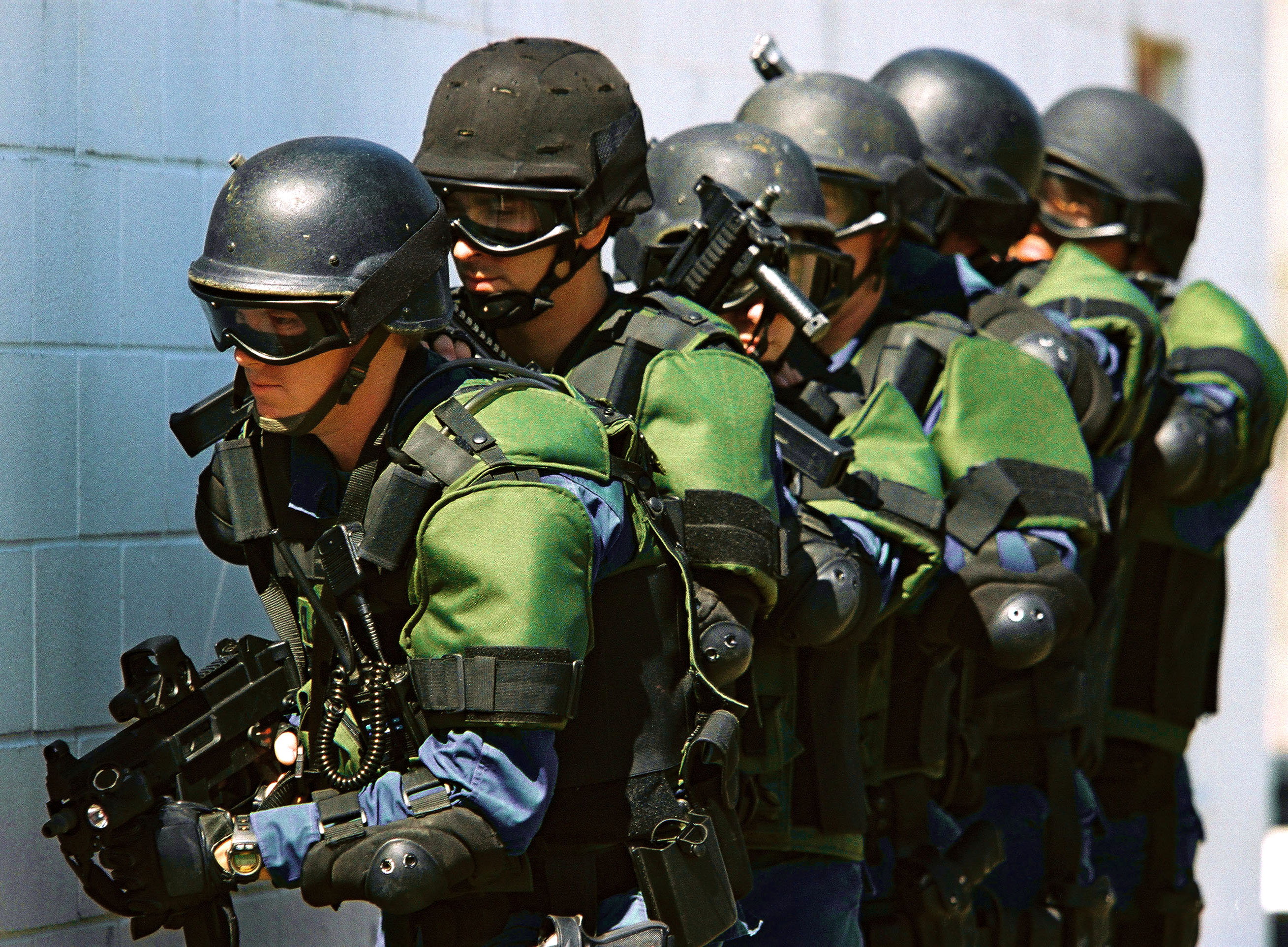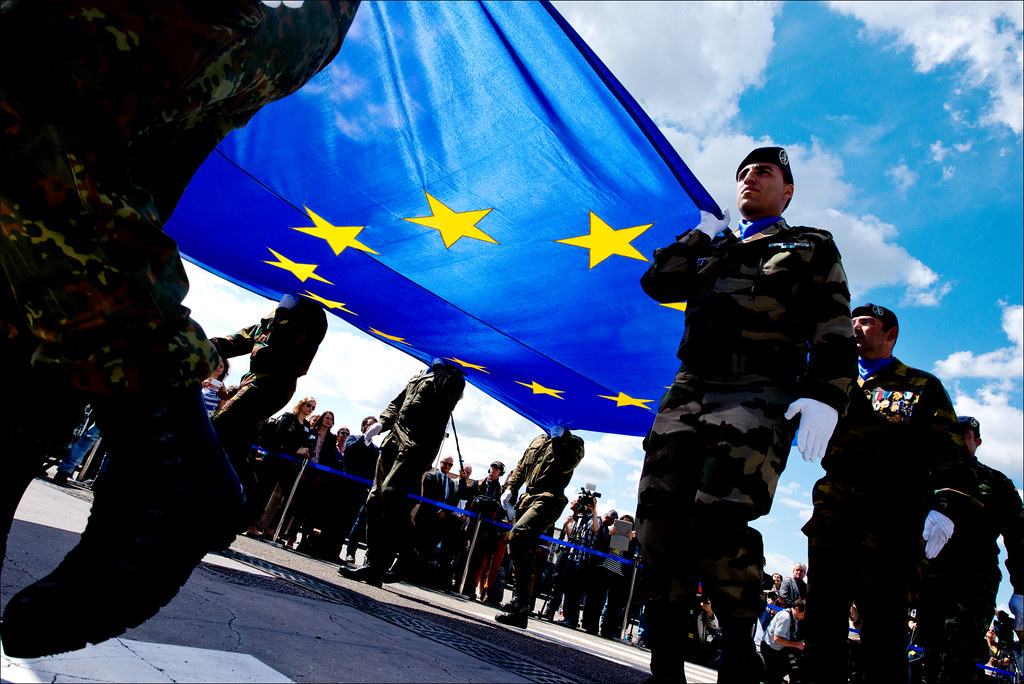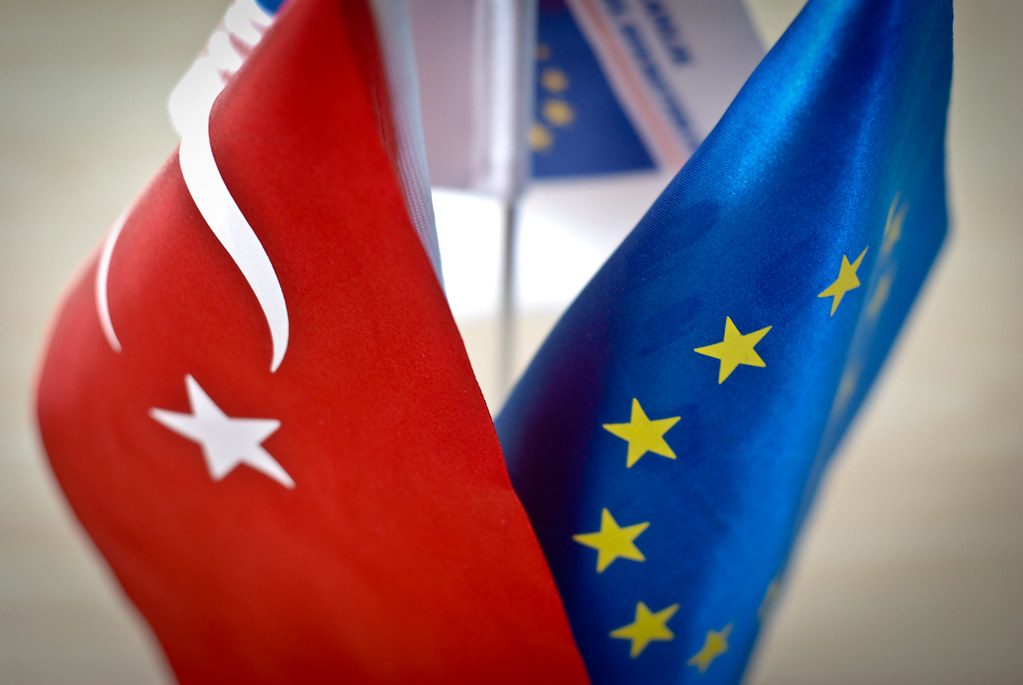Ian Quinton OBE is an independent security consultant, with a previous and distinguished career in policing that lasted thirty years. Ian has also recently completed an MA in International Security at UEA. In this interview with Lee Jarvis, Ian reflects on his professional experience to discuss the value and limitations of academic research for practitioners working in areas around policing, security and counter-terrorism.
Lee Jarvis: Thank you very much for taking the time to speak to us. I wonder if you might begin by saying a little about the type of work in which you were involved during your policing career.
Ian Quinton: I served in two forces, the Metropolitan Police Service and Norfolk Constabulary, performing both uniform (public order and major sporting events, for example as ‘Match Commander’ for Norwich football) and detective duties (anti-corruption and child protection). The defining event in my professional development was the key role I played in the successful delivery of the 2012 London Olympic and Paralympic Games. This marked the culmination of a 30-year career in policing and I retired at the end of 2012. Since then I have operated as an independent security consultant, working mainly to commissions from the British government. During the course of my career I was, amongst other things, variously deployed as: a Counter-Terrorist Firearms Commander; Senior Investigating Officer; and, a Covert Human Intelligence Source Controller.
Between 2008-2012 I created the framework within which the national Olympic safety and security operation was delivered. In particular, I developed the national safety and security strategy, the national concept of operations and the national Olympic Safety and Security Strategic Risk Assessment. During Games-time I was able to put theory into practice when I served as Chief of Staff to the National Olympic Security Coordinator (NOSC), operating out of the National Olympic Coordination Centre based at New Scotland Yard. In this capacity I deputised for NOSC, attending meetings on his behalf, including representing Olympic security at COBRA.
Prior to the Olympic role I served as the operational commander for North East London and was responsible for seven boroughs including Hackney, Tower Hamlets, Waltham Forest and Newham. Other career highlights include: writing the ‘security’ chapter of the Football Association bid for the FIFA 2018 World Cup; serving as deputy Senior Investigating Officer (SIO) for one of the so called ‘collusion’ enquiries in Northern Ireland; and my time as staff officer to HM Chief Inspector of Constabulary when I was a key contributor to a number of critical areas of work, not least in ensuring the police service’s response to suicide terrorism (prompted by the shooting of Jean Charles de Menezes at Stockwell in 2005) was fit for purpose and in the review of security sector reform in Iraq that helped to shape UK policy in that country.
Since leaving policing I have twice been commissioned by the Home Office to conduct independent evaluations of security related issues. The first, in 2013, was to review the assurance arrangements for the security operation for the 2014 Glasgow Commonwealth Games. The second, in summer 2014, was a commission to evaluate the effectiveness of the European Commission’s security regime for air-freight. I have also provided support to the Home Office’s Security Industry Engagement team, which was created to promote UK expertise in major event security overseas. In October 2014, I was part of a UK government delegation to Brazil, pursuant to which I spoke at a conference organised by the Brazilian Army at their headquarters in Brasilia. The subjects I was asked to address included counter-terrorism planning in the Olympic context and ‘command & control’ arrangements for major events.
LJ: Did you have much contact with academic researchers during your career? Did this change at all over time?
IQ: To my regret, beyond leadership training that had a strong theoretical input, I had very little contact with academic researchers during my career. I say regret because I now appreciate that academia can have a role in helping formulate policy, both at a political and operational level, albeit I am very careful to distinguish between policy and tactics here, with the latter largely being a matter for operational commanders.
LJ: In your experience, what are the benefits of academic research for professionals working in policing and security?
IQ: At the broad level the benefits of academic research are as follows:
- They are usually independent of the police and thus their findings can carry more weight.
- They can often reach parts of the community, particularly vulnerable communities, that police can’t easily reach – due to mutual suspicion, overhanging cultural factors, etc.
- It often has a greater degree of rigour – as a result of the expertise of the academics in research etc. and that lack of time pressure. Too often in policing the pressure for a quick solution means the good (or even the merely adequate) can trump the excellent.
- In can bring different perspectives and thus be less prey to group think/institutional blinkers
- It really can make a difference – to me the best example is the Morgan Report that led to the Crime & Disorder Act in the late 1990’s that fundamentally shifted policing towards partnership working.
With regards to counter-terrorism, academia has a specific contribution to make, and can help the way in which CONTEST is operationalised:
- It is most relevant to the PREVENT strand as this is very much about ‘hearts & minds’ and the key to this is knowing how your target audience think and what approaches might therefore be effective. In particular, it is a powerful rejoinder that communities do not speak with a single voice, but instead contain a multiplicity of views.
- With regards to the other three ‘P’s – pursue, protect, prepare – academic feedback allows operational commanders to consider how operational decisions/tactics might be perceived and thus have unforeseen consequences – for example if a short-term success actually provokes greater resentment in the longer-term. In this, perception can be at least as important as reality.
- In challenging underlying assumptions about what works it can potentially also influence the development of tactics.
- It reminds us that public confidence is key, and not to become too focused on operational matters at the expense of the bigger picture. If I think back to my time as an operational commander I always used to ask myself “Can we?” (i.e. is it legal?), but did not always then ask myself “Should we?”
- It also reminds us that we should not just look at problems through the lens of CT. We also need to be aware of the dangers of inadvertently demonising some minority communities as this might increase their sense of alienation and even fuel the rise of the far right – thus leading to implications for public order.
LJ: What are the main limitations of academic research (and researchers!), and how might these be managed?
IQ: Notwithstanding my above comments, we must be mindful academic research is no panacea and that there are dangers:
- Not all academicians are impartial and some bring self-fulfilling prophesies.
- Academics need to understand the operating context/parameters as unworkable solutions are worthless. It is also important to recognize that policing is not an exact science. Even if something is calculated as being a 99% probability, it still means one time in every hundred the opposite will happen – and in my experience you rarely reach that level of certainty. In such cases it is important not to judge police commanders through the exact science that is hindsight. Similarly, there is a need to understand the crucial difference between intelligence and evidence and recognition that one rarely has the full picture.
- They need to understand the potential dangers – to sources, reputation and public safety & confidence (for example the decline in child inoculations caused by the furore over the MMR jab which has seen some childhood diseases make a comeback).
- There is a need to recognise the dynamic nature of policing and avoid being overtaken by events.
- It can be ‘too stand alone’ and not shared widely enough.
LJ: Academics sometimes feel it is difficult to access or influence security professionals. Do you have any thoughts on how they might do this more successfully?
IQ: I think there are three main barriers that need to be overcome.
The first is to gain the trust of security professionals. This does not mean agreeing with them, but an academic must be able to demonstrate professional integrity.
The second is the ability to show an appreciation, and understanding, of the imperfections of the environment in which security professionals operate. Again, this does not mean agreeing with their worldview, but it does mean acknowledging the difficulties they face when there is rarely a ‘completely right’ decision. In some cases the best choice is the least ‘worst’ option!
The third is to demonstrate the utility of the research in question, i.e. how it answers the “so what” question.
More broadly, my experience is that the longer lasting the relationship between professionals and academics the greater the access/insight they will be afforded – which brings us back to trust.
LJ: What made you decide to return to academia for an MA degree in International Security?
IQ: I guess you could say that having ‘done’ security in practice, both in the UK and overseas, I wanted to do the theory. Most people probably do this the other way around, but being able to overlay the theory with my professional experience probably made studying all the richer for me.
LJ: Having recently completed that degree, to what extent do academic debates in Security Studies speak to your professional experience? Did anything stand out as particularly promising or misguided?
I was a bit frustrated by the tendency to compartmentalise different theories as to me they bleed into one another. Thus whilst my default position is as a ‘liberal’, on some issues I am a realist, others a constructivist or a feminist. I may be accused of being naïve, or even of missing the point, but I sometimes wish we could remove politics and particularly political baggage from security!
I was also struck by the relative absence of professional input in the reading lists. There are a number of ‘thinking’ soldiers, police officers and security officials (yes, they do exist) who have written thoughtful and sometimes even counter-intuitive pieces on security related themes, yet their work is rarely referenced.
As would befit someone with my background, I think more could be done to develop the relationship between ‘risk’ and security as, in my view, mitigating the former should drive the latter
LJ: Thank you again for taking the time to speak to us.
To find out more about UEA’s MA in International Security, please visit: https://www.uea.ac.uk/study/postgraduate/taught-degree/detail/ma-international-security or contact course convener Dr. Lee Jarvis
Image Credit: Wikipedia
Lee Jarvis is Senior Lecturer in International Security at the University of East Anglia





